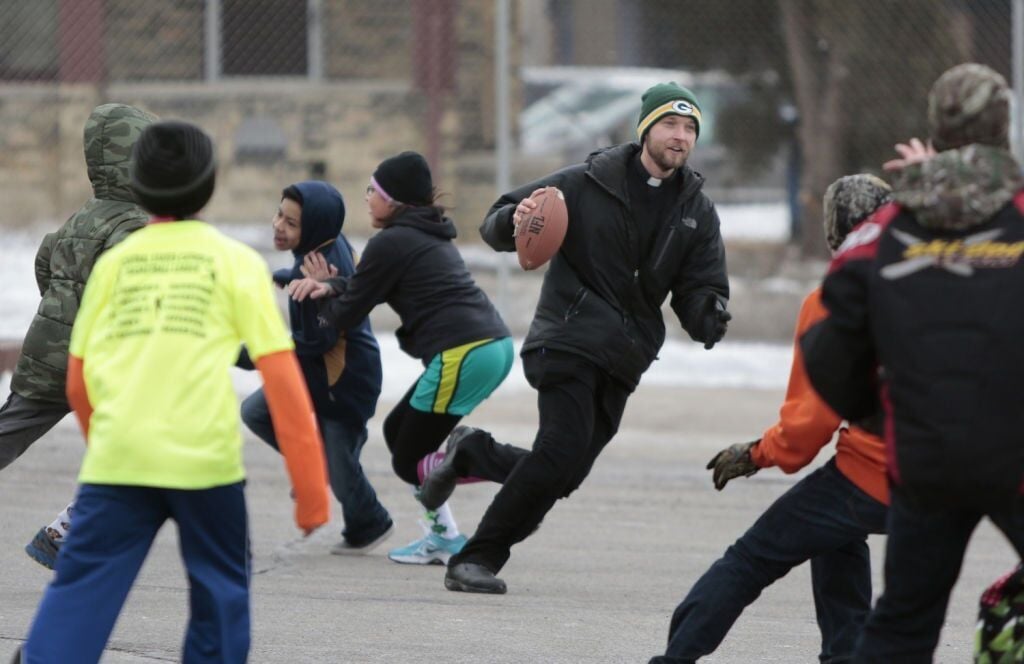I was sitting in a local park watching a small group of boys play tag football.
They spent a long time setting up the sidelines and endzones, using some trees, backpacks and discarded sweatshirts as boundary markers. Then they had a lively discussion about the rules, two-handed or one-handed tag, how long to count before rushing the passer, and so forth. That was followed by arguments on each team about who would play which positions.
They finally got around to playing but would stop every few minutes to argue about whether a runner was tagged or stepped out of bounds or threw the ball ahead of the line of scrimmage β that sort of thing. By the time I had to leave, I estimated that they had spent about 5 minutes talking for every 1 minute of playing the game.
And that is what is so great about unstructured play. It is the way children learn how to engage in one of the most essential skills of adulthood, the art of constructive disagreement.
People are also reading…
As adults, we often take a dim view of disagreement. We tend to praise unity and cohesion and to think of dissent as counterproductive. We blame the dissenters for causing trouble or not being team players.
Of course, dissent is counterproductive when thatβs all you have, when groups of people can never decide on a course of action or when a few people are always sabotaging the rest of the groupβs efforts. But it is also true that healthy unity only arises out of a process of constructive disagreement, when members of a group gradually come to consensus on how to proceed together.
In democracies, the art of constructive disagreement is especially important because people with a wide range of customs, backgrounds and interests must come together regularly to decide policies, laws, and representation. And they must reach agreement not just on their goals but on the means to achieve them. In other words, they must agree on the rules of the game.
Right now, our country is suffering from what many observers are calling a βconstitutional crisis.β The Trump Administration is systematically expanding the powers of the executive branch through mandates that intrude upon the authority of the legislative and judicial branches of government. Our nation isnβt following the rules of the game.
In some respects, this is nothing new. Every administration in recent history has used executive orders to expand the reach of the executive branch. The difference is the increasing number and scope. On his first day of office, President Donald Trump issued 26 executive orders. That was unprecedented.
To put it in perspective, the nine presidents elected prior to Joe Biden issued a combined total of four executive orders on Inauguration Day. Then on Jan. 20, 2021, President Joe Biden issued 9 executive orders. That also was unprecedented.
The first executive order Trump signed was 14148, rescinding 68 executive orders from the Biden Administration. One of Bidenβs first executive orders was 13992, which rescinded 6 executive orders from the first Trump Administration.
Several of the Trump Administrationβs executive orders are being challenged in the courts. Some will almost certainly be determined unconstitutional, as was Bidenβs executive order forgiving student loans. Neither side is playing by the rules anymore, and supporters of each party point to the transgressions of the other side to justify their overreach.
Every year the Annenberg Public Policy Center conducts a civics survey. This year they found that just under two-thirds of respondents could name the three branches of government and most could name only a single right guaranteed by the First Amendment.
If Americans do not know what the rules are, they cannot be expected to hold elected officials accountable for following the rules.
America is facing a constitutional crisis not just because the president is defying the courts. We are facing a constitutional crisis because Americans donβt know the Constitution. Thatβs not just a failure of civics education; it is a failure of character formation.
The U.S. Constitution is a set of rules for how the government should be run. But those rules are not imposed upon the citizens; the rules are self-imposed. That is what makes a democratic republic distinctive from many other forms of government. For the Constitution to work, we must be a nation of people who agree to be governed by the rules. A democracy can survive only when the people in it care even more about playing by the rules than about getting their own way.
The next time you see a group of children arguing about the rules, keep in mind that they are training to be citizens of a democracy.
If they are just blindly following or breaking the rules, they are training to be citizens of some other form of government.












